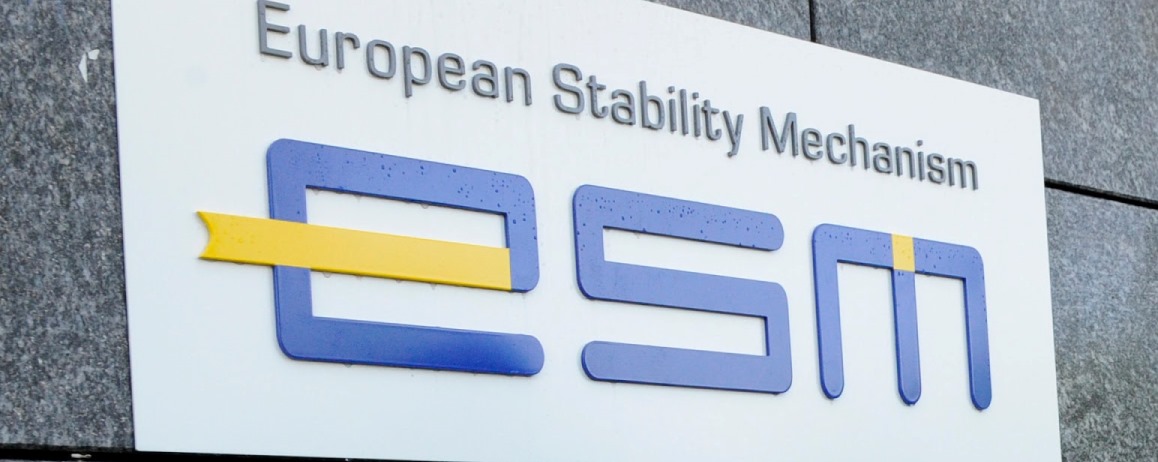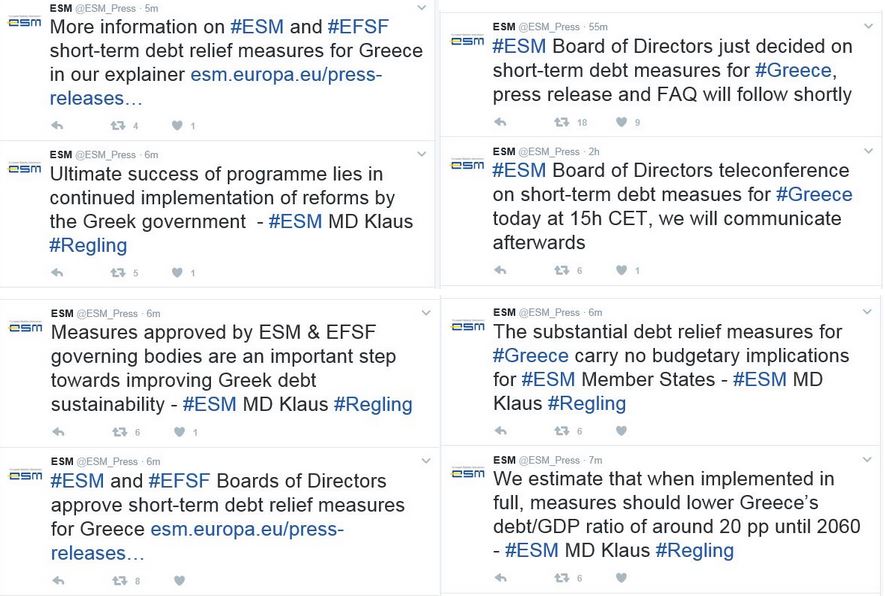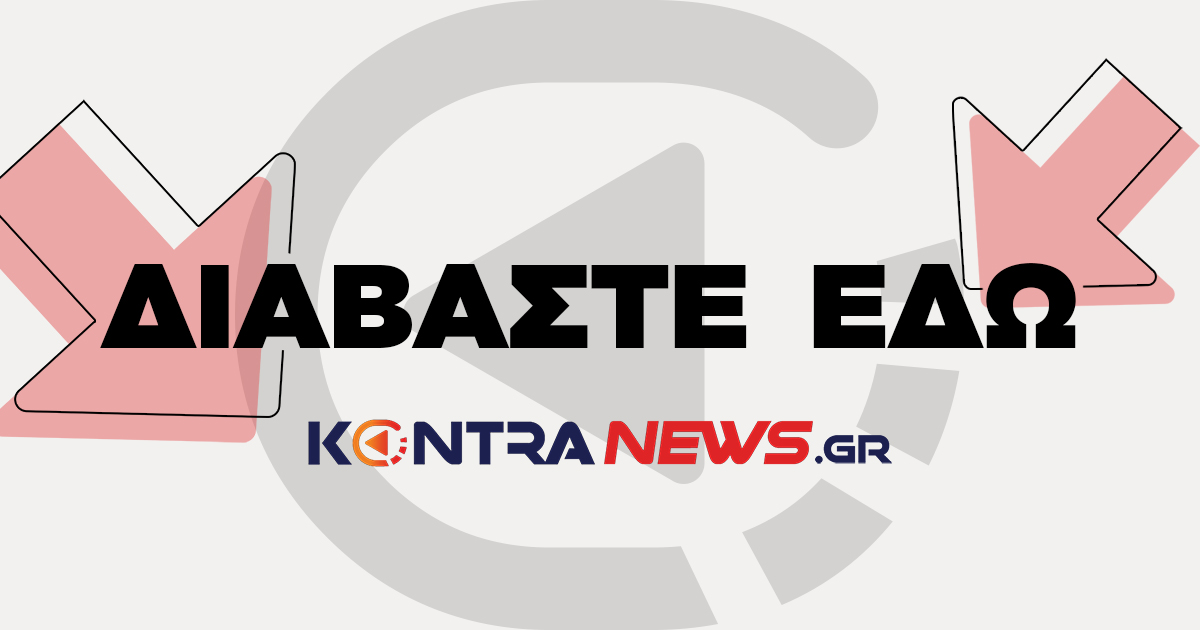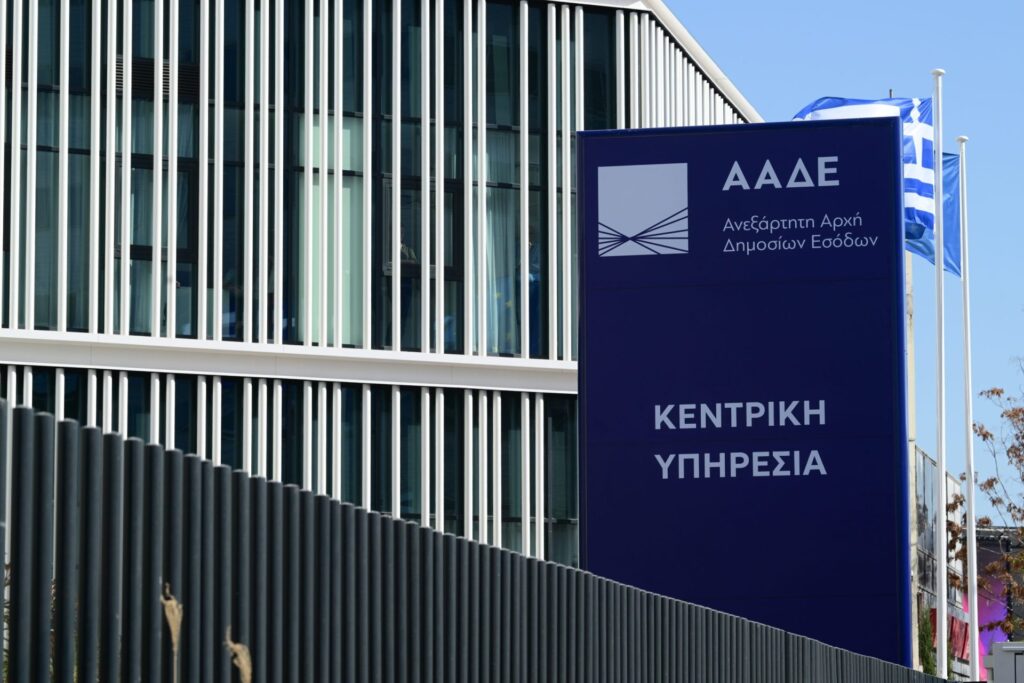Εγκρίθηκαν τα μέτρα ελάφρυνσης του χρέους από τον ESM

«Τα μέτρα δεν επιβαρύνουν τους προϋπολογισμούς των κρατών-μελών του ESM»
Την επίσημη «βούλα» στα βραχυπρόθεσμα μέτρα ελάφρυνσης του ελληνικού χρέους, έβαλε το συμβούλιο του Ευρωπαϊκού Μηχανισμού Σταθερότητας (ESM), στο τέλος της σημερινής του συνεδρίασης του διοικητικού του συμβουλίου. Το συμβούλιο, που είναι το δεύτερο την τάξη όργανο του οργανισμού, απαρτίζεται από τα μέλη του EuroWorking Group (EWG) και την Ελλάδα εκπροσώπησε ο αναπληρωτής υπουργός Οικονομικών Γιώργος Χουλιαράκης.
Η ανακοίνωση, έγινε με ανάρτηση του Ευρωπαϊκού Μηχανισμού Σταθερότητας (ESM) στον επίσημο λογαριασμό τους, στο twitter , με τον οποίο, ανέφερε ότι, «Το Συμβούλιο των Διευθυντών του Ευρωπαϊκού Μηχανισμού Σταθερότητας (ESM) αποφάσισε τα βραχυπρόθεσμα μέτρα για το ελληνικό χρέος. Θα ακολουθήσουν σε λίγο το δελτίο Τύπου και λεπτομέρειες με τη μορφή ερωτήσεων – απαντήσεων».
«Τα μέτρα δεν επιβαρύνουν τους προϋπολογισμούς των κρατών-μελών του ESM» και πως «Η τελική επιτυχία των μέτρων, εξαρτάται από την συνέχιση, υλοποίησης των μεταρρυθμίσεων, από την ελληνική κυβέρνηση».

Το κείμενο του ESM στα αγγλικά:
ESM and EFSF approve short-term debt relief measures for Greece
Luxembourg – The Boards of Directors of the European Stability Mechanism (ESM) and European Financial Stability Facility (EFSF) today adopted the rules implementing a set of short-term debt relief measures for Greece. The measures are designed to reduce interest rate risk for Greece, including by exchanging some debt to fixed from floating rates, and to ease the country’s repayment burden. The ESM Board of Governors approved the measures in a written procedure concluded on 20 January 2017.
“The measures approved by the governing bodies of the ESM and EFSF are an important step towards improving Greek debt sustainability. We estimate that when implemented in full, they should lead to a cumulative reduction of Greece’s debt-to-GDP ratio of around 20 percentage points until 2060. We also expect Greece’s gross financing needs to fall by almost five percentage points in the same time horizon,“ said ESM Managing Director and EFSF CEO Klaus Regling.
“This substantial debt relief carries no budgetary implications for ESM Member States. The ESM and EFSF short-term measures will ease Greece’s debt burden, but the ultimate success of the programme lies in the continued implementation of reforms by the Greek government.”
The ESM Board of Directors approved three schemes aimed at reducing interest rate risk for Greece. The first is a bond exchange, where floating rate notes disbursed by the ESM to Greece for bank recapitalisation will be exchanged for fixed coupon notes. The second scheme allows the ESM to enter into swap arrangements to reduce the risk that Greece will have to pay a higher interest rate on its loans when market rates start rising. The third scheme is known as “matched funding”, which will entail issuing long-term bonds that closely match the maturity of the Greek loans, and implies the ESM charging a fixed rate on part of future disbursements to Greece.
The EFSF Board of Directors also approved a bond exchange, similar in its purpose and design to the exchange of ESM bonds, but applicable to EFSF floating rate notes disbursed to Greece. In addition, the EFSF has waived the step-up interest rate margin for the year 2017 on the €11.3 billion EFSF loan tranche that was used to finance a debt buy-back. A margin of 2% had originally been foreseen, starting from 2017.
An additional measure – the smoothing of Greece’s EFSF repayment profile – will be carried out at technical level by the EFSF. It is expected to be completed by the end of January 2017.
Euro area finance ministers endorsed these measures at the Eurogroup meeting on 5 December 2016.
For further information on ESM and EFSF short-term debt relief measures for Greece, please consult the explainer on the ESM website.
Σχετικά Άρθρα
16/01/2026 - 15:50
16/01/2026 - 14:50
Δείτε επίσης





